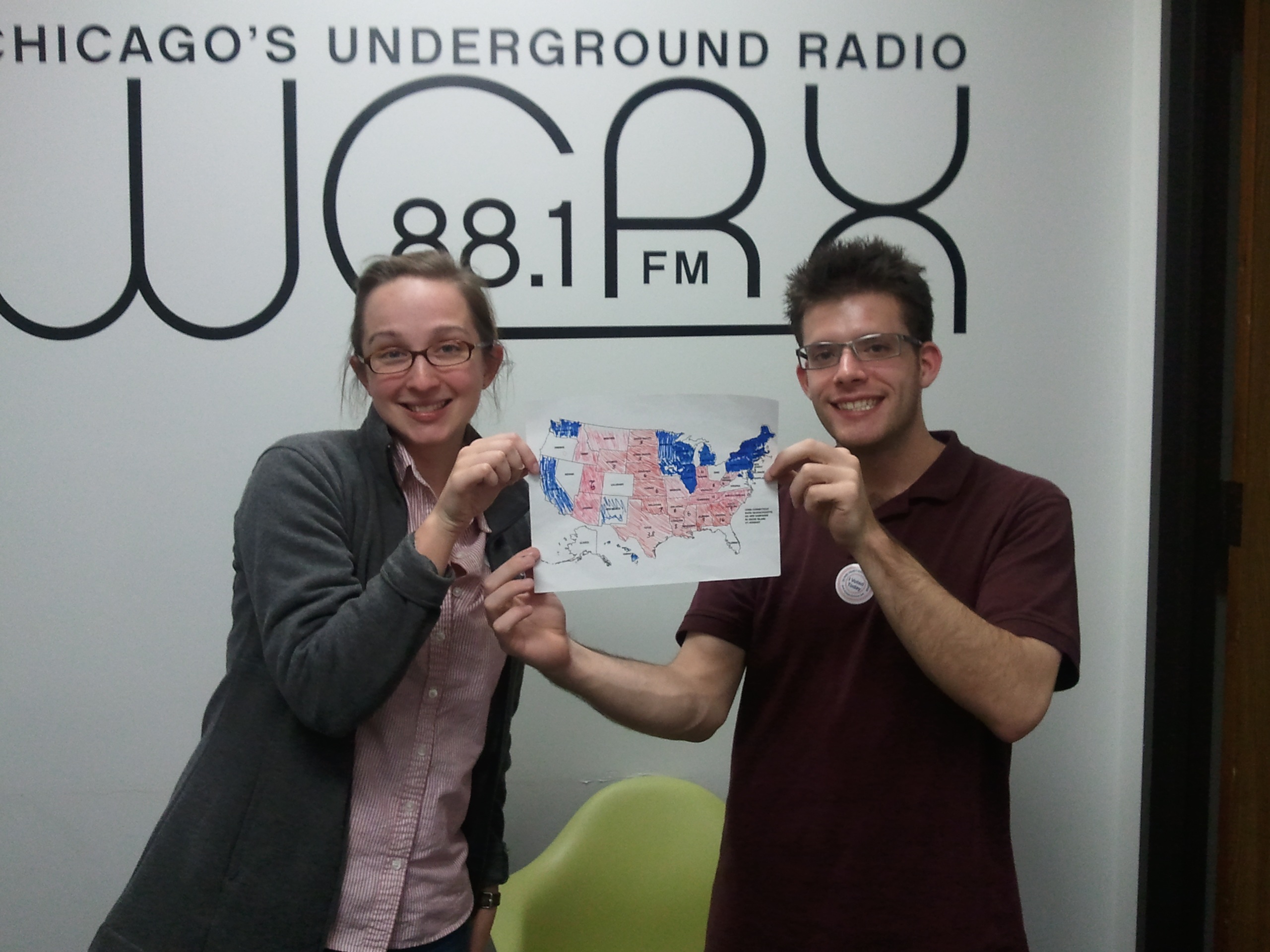
Adventures in Reporting: Election Day 2012
[flickr id=”8166680753″ thumbnail=”medium” overlay=”true” size=”original” group=”” align=”none”]
From the first day of the Iowa Caucuses in January, 2012 to Election Day this November, I have been covering the presidential election. It was a fantastic learning experience capped off by providing election night news coverage for WCRX.
Before covering the election, I’d only done a little work with broadcast—putting together a practice piece about the city’s parking tax for my digital media class. It was fun, but for the Iowa Caucuses, I decided I wanted to live my dream of reporting NPR style, so I borrowed a recorder and microphone and produced some primary election audio stories.
But putting together day-after audio pieces was nothing like writing news on the fly for live election coverage for WCRX, Columbia’s student-run radio station.
[flickr id=”8166680955″ thumbnail=”medium” overlay=”true” size=”original” group=”” align=”none”]
I was a source writer/fact checker/copy editor for election night, meaning news read on air had to come from me or be vetted by me. I felt like some crazy, hectic news-sharing goddess because essentially, I’d be calling the race for our station.
It was my job to pull important news from the Associated Press, which provides news coverage for broadcasters across the country, edit it down to its most essential and interesting form, and then take it over to the anchors to read on air.
The WCRX newsroom was a bustling workplace I shared with the congressional race editor, the social media editor, and the electoral college editor. We were all using at least one computer (often two) and two televisions to watch what the rest of the media were saying about the race.
[flickr id=”8166680689″ thumbnail=”medium” overlay=”true” size=”original” group=”” align=”none”]
This was especially useful when AP’s main server crashed, and we were without presidential election updates just as the race started favoring Obama and the rest of the states were being called in rapid succession. Inopportune timing doesn’t even begin to describe the incident.
But this is exactly what happens in real life: you encounter a problem, and you adapt. Great practice!
David, the electoral vote editor, and I ended up collaborating, calling states when at least two major networks did. We kept our own tally sheet along side a printed out map of the U.S. that we colored in red or blue as we called states.
We ended up calling the race for Obama a few minutes before 11:00 pm. I’d finally seen this presidential race through from start to finish. It was an amazing experience, and I’d like to think that if my contribution to the coverage helped at least one person cast a more informed vote, then I did my job.
